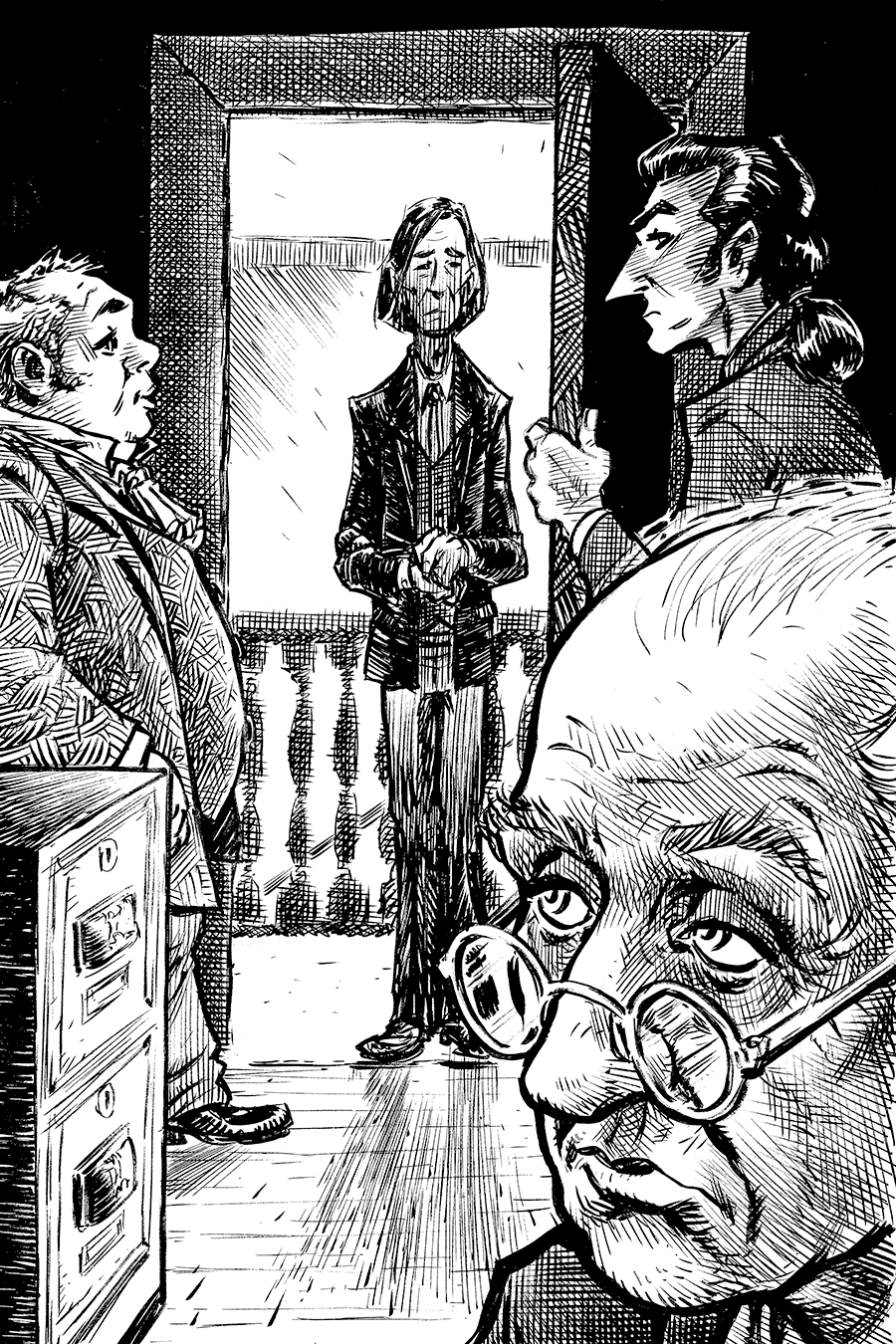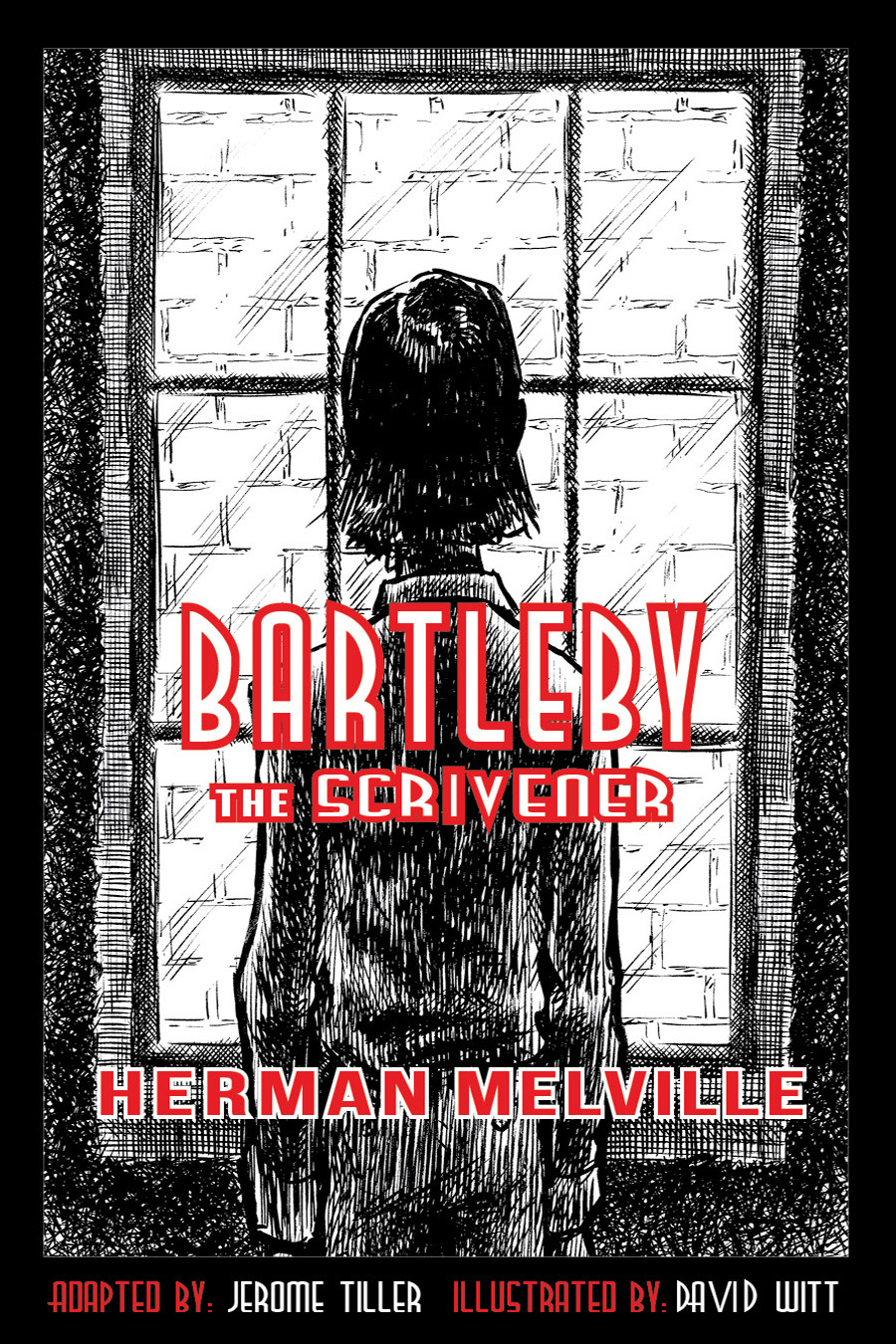Bartleby and Individualism
Bartleby was an individualist who was hired to copy law documents and to model a calm demeanor that hopefully his co-workers would emulate. Bartleby calmly did these things very well, but only briefly, for he quickly preferred not to copy law documents and, being an individualist who acted in line with his preferences, he would not. Bartleby was seemingly endowed with his calm demeanor and evidently always conformed with this gift, probably by not preferring to be anybody but himself, for his calm demeanor never varied. Yet that quality proved entirely worthless to his employer—it lost all its modeling value when Bartleby refused to work.
Individualism is a storied trait of the U.S. American character, but what to make of Bartleby, I don’t know. He is lauded by some as near-hero for his rejection of the capitalistic economic system that encourages and rewards easy money over labor, but I don’t know. I would prefer not to make a judgement on that. I will say, though, the main rub with this hero theory involves Bartleby’s ultimate preference, which destroyed his own health and ended his life by starvation.This makes no sense unless he chose martyrdom to make a point, but if he did this, his final preference was for a cause unspecified. So what would be the point of that? His final preference would be suggestive of insanity then, not heroism.
But of course, Bartleby is a fictional character, so his creator, Herman Melville, another individualist in temperament (but also in talent!) should be analyzed, not Bartleby. Did Melville believe the capitalistic economic system can drive people, especially hard-working people, insane? I doubt that was Melville’s point, at least not exactly, but nobody knows—Melville never said.
We do know that Melville’s genius, which was developed and manifested through hard work—obsessively hard work—went mostly unappreciated and unrewarded in his lifetime. So was he simply angry about that? Did he create his character Bartleby to lash out at the something-for-nothing, me-first culture that is wrought by capitalism? Perhaps, maybe even likely. Yet we are forced to settle for perhaps.
Bartleby is considered one of the most individualistic characters ever created, mostly because he acted contrary to the individualistic culture into which he was set. His contrariness in that culture is what drove him to the brink. So go take that message and chew on it, Melville might have thought. Might have. Or was this simply a story about a man who lost his mind, and who would have lost it whether he was here, there, or anywhere, no matter what. But isn’t that way, way too simple for an author as heady as Melville?
Yes, I suppose. But so it is, whether out of the shallows or out of the depths, Bartleby the Scrivener poses questions nobody can answer. That’s characteristic of most great fiction, and therefore a dilemma readers are forced to accept. But why then do I feel compelled, as so many other readers have been, to understand what motivated Bartleby? I, and many others with me and before me, am unable to prefer not to know what drove Bartleby to always prefer not to rather than to prefer to. Ah, Bartleby! Couldn’t you have rather not preferred to not give us a break!



